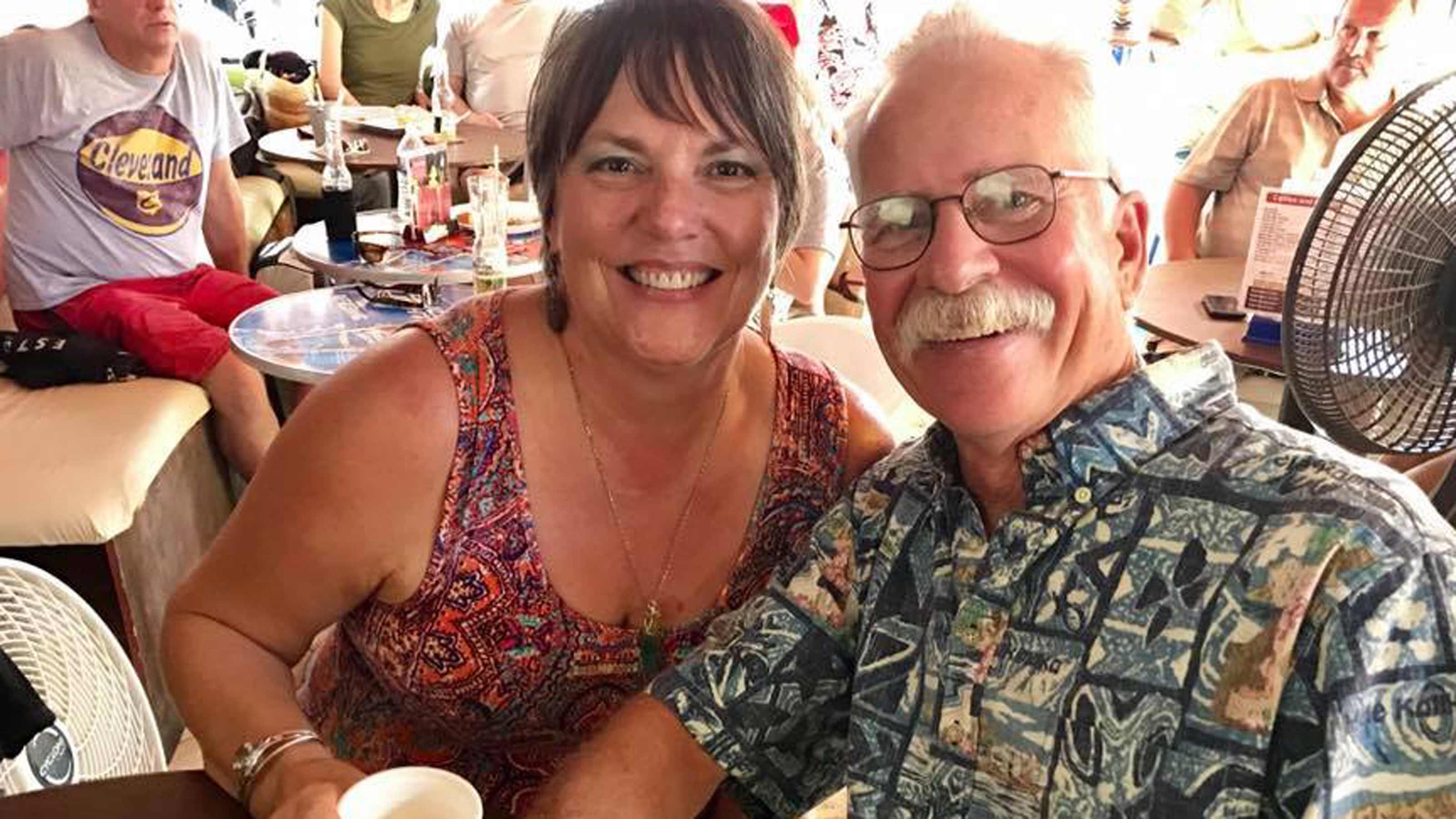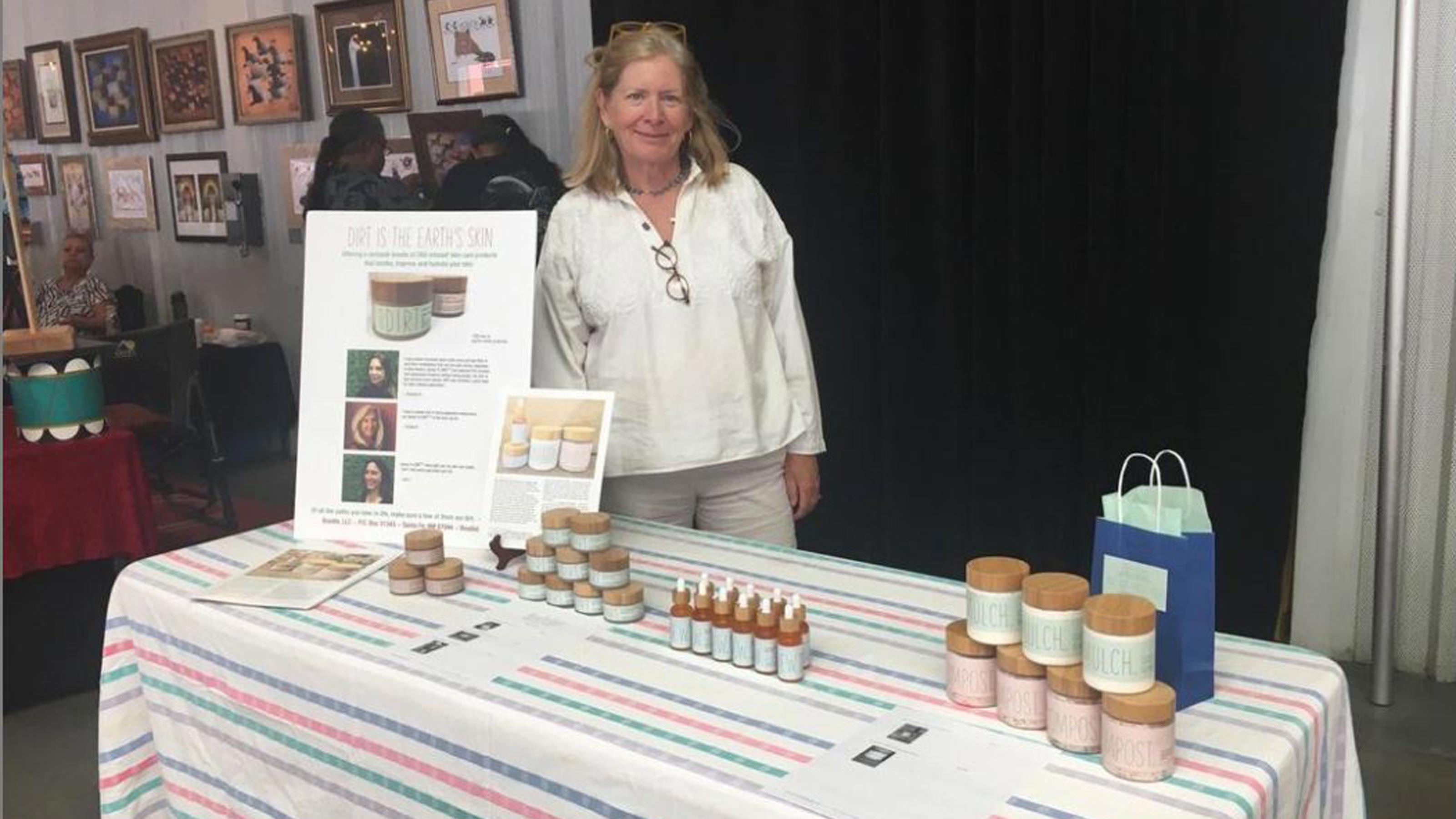The Joy of Owning a Business in Retirement
Golf and lazy days at the beach aren’t for everyone. In fact, some “retirees” get a kick out of challenging themselves as encore entrepreneurs. It can be engaging, fulfilling and lucrative all at the same time.


Profit and prosper with the best of Kiplinger's advice on investing, taxes, retirement, personal finance and much more. Delivered daily. Enter your email in the box and click Sign Me Up.
You are now subscribed
Your newsletter sign-up was successful
Want to add more newsletters?

Delivered daily
Kiplinger Today
Profit and prosper with the best of Kiplinger's advice on investing, taxes, retirement, personal finance and much more delivered daily. Smart money moves start here.

Sent five days a week
Kiplinger A Step Ahead
Get practical help to make better financial decisions in your everyday life, from spending to savings on top deals.

Delivered daily
Kiplinger Closing Bell
Get today's biggest financial and investing headlines delivered to your inbox every day the U.S. stock market is open.

Sent twice a week
Kiplinger Adviser Intel
Financial pros across the country share best practices and fresh tactics to preserve and grow your wealth.

Delivered weekly
Kiplinger Tax Tips
Trim your federal and state tax bills with practical tax-planning and tax-cutting strategies.

Sent twice a week
Kiplinger Retirement Tips
Your twice-a-week guide to planning and enjoying a financially secure and richly rewarding retirement

Sent bimonthly.
Kiplinger Adviser Angle
Insights for advisers, wealth managers and other financial professionals.

Sent twice a week
Kiplinger Investing Weekly
Your twice-a-week roundup of promising stocks, funds, companies and industries you should consider, ones you should avoid, and why.

Sent weekly for six weeks
Kiplinger Invest for Retirement
Your step-by-step six-part series on how to invest for retirement, from devising a successful strategy to exactly which investments to choose.
Editor’s note: Welcome to “The Retirement Happy Hour,” a lifestyle series that explores how people find happiness in retirement, featuring the personal stories of real retirees. Plus, scientific research that reveals how we can all start living a happier, more meaningful life right now.
If your work offered the most important elements to make you happy in life – a sense of purpose, the flexibility to generally live on your terms, financial security and good health – would you ever want to retire?
That’s the question I came away with after speaking with and learning about small-business owners in their 50s or older, known as encore entrepreneurs.
From just $107.88 $24.99 for Kiplinger Personal Finance
Become a smarter, better informed investor. Subscribe from just $107.88 $24.99, plus get up to 4 Special Issues

Sign up for Kiplinger’s Free Newsletters
Profit and prosper with the best of expert advice on investing, taxes, retirement, personal finance and more - straight to your e-mail.
Profit and prosper with the best of expert advice - straight to your e-mail.
Take for example, the story of Dawn Fleming, 60, a former attorney turned vacation rental entrepreneur.
Like millions of people, Dawn and her husband were hit hard by the 2008 financial crisis. Three properties they owned went into foreclosure, and they struggled to find work. After two rough years, the couple moved from California to Florida to start over and rebuild their finances. But instead of taking the traditional road to retirement, they threw caution to the wind and purchased an oceanfront home on Isla Mujeres, Mexico, in 2016 and converted it into a micro-hotel called Castillito del Caribe.
Now, Dawn says, they manage various business interests while “living the dream in paradise.”

As people generally live longer, healthier lives, some say the definition of retirement is changing. It might be more accurate, though, to say more people are just rejecting the idea altogether. When I asked about potential business risks impacting their retirement, Dawn said, “We don’t feel at risk as we don’t believe in retirement.”
Rather than work toward a retirement that is all rest without work and responsibilities, many older adults want to leverage their skills and pursue their passions to live their best life. And many are doing that by starting their own businesses.
The prevailing image of entrepreneurs as 20- or 30-somethings leading tech startups is deeply flawed. The reality is that more than 50% of U.S. small businesses are owned by people 55 and older, according to a survey by SCORE, a nonprofit that provides volunteer mentorships to small-business owners.
Still, when considering the potential responsibilities of owning a business — manufacturing products, market research, marketing, the occasional disgruntled customer, etc. — is it worth it as a retirement activity?
Most older entrepreneurs say “yes.” A survey from Guidant Financial found 77% of baby boomer small-business owners said they feel happy.
If the thought of dramatically slowing down with age doesn’t thrill you, then it’s worth understanding why these individuals find joy in being encore entrepreneurs.
More than just money: Flexibility, purpose, engagement and health
A decade spent in the finance industry living a road warrior lifestyle, often traveling 150 days a year, took its toll on Andy LaPointe. But it was a single, fateful morning that finally changed everything. On 9/11, he found himself stranded in Kentucky on a business trip. With flights grounded indefinitely, he had to take a rental car back home to northern Michigan. Over the course of the eight-hour journey, he tried to make sense of not only the tragedy of 9/11, but also of his own life. He decided then to start building a new lifestyle on his own terms.
Soon after, Andy and his wife launched Traverse Bay Farms, a gourmet food company based in Bellaire, Michigan, that primarily uses locally sourced produce. Now age 50, he is joining the encore entrepreneur crowd, and says entrepreneurship gives him the life he wanted.
“The most rewarding part is the ability to design the lifestyle I want and then work to earn an income to support that lifestyle,” he says.
LaPointe is not alone. People of all ages want to live life on their terms, to do something meaningful while being able to spend time with loved ones and pursue other interests. That takes a certain level of flexibility not often granted in a typical 9-to-5 job and a level of engagement, perhaps, not often found in a typical retirement.
“For me, the flexibility to schedule my days as I see fit is a big benefit of having my own business,” says Moira Gehring, who at the age of 65 recently launched BoodleBody, a CBD-infused skincare line in Santa Fe, New Mexico.

She says being an entrepreneur, while busy, provides other benefits, too. Her business helps her stay active and socializing with other people, whether at a local market or at meetings with other business owners. On top of that, owning a business has kept her learning new things, such as using social media and e-commerce platforms.
Studies show that socializing and learning are key for improving physical and mental well-being among older adults.
For hotelier Dawn Fleming and her husband, living and owning a business abroad has given them the opportunity to connect and help other expatriates. Dawn says what they enjoy most about their business is “helping people and creating a community.”
In the 2021 report “The Four Pillars of the New Retirement” by Edward Jones and New Age, retirees identified the important elements of well-being as health, positive relationships and close social connections, a sense of purpose, and financial security.
In addition to feeling happy, nearly 80% of boomer small-business owners said their business was currently profitable, according to the Guidant Financial survey. Therefore, I don’t think it’s a stretch to say owning a small business is one of the few activities that could possibly serve all four pillars of retirement.
Starting your own encore business
Should you consider becoming an encore entrepreneur? To find out, ask a few questions, and answer them honestly.
- Do you have a passion or hobby that you want to pursue in retirement? Do you have the financial resources that you can afford to put toward it?
- Do you lack the financial resources to retire and may need to work?
- Does the thought of a traditional retirement bore you? Do you still seek the gratification and challenges that come along with working?
If you answered yes to any of these questions, starting a business may suit you. In that case, here is some advice to help get you started.
Come up with an idea.
You may want to start with what you know and enjoy. Dawn recommends that you try “matching your skills with your passions, because if you don’t love it, you probably won’t be successful.” This is where older adults can utilize their lifetime of experience, knowledge and networks.
Norman Sherman, a business mentor at SCORE, says, “It’s been my experience that 50+ entrepreneurs are more likely to succeed if their business idea is in an area closely related to their body of experience. The learning curve is shortened, and ‘muscle memory’ enables them to avoid common pitfalls.”
Sometimes, however, great business ideas can come from unexpected places. Moira researched the benefits of CBD (cannabinoid) after seeing its healing effects on her rescue dog, who struggled with injuries after being hit by a car. She then started experimenting with her own applications for humans in her kitchen.
Test your business idea.
Moira highly recommends that you “test your idea before committing too much time and capital.”
How?
“Start by speaking with people you know,” says SCORE mentor Norman. “What product or service are they currently using in your competitive frame? Are they satisfied with it? What do they like or dislike? Then share your idea. Do people like or dislike it? Why? What would make it better?” From there, he suggests conducting some market research with programs like SurveyMonkey, which allows you to survey people for little or no cost.
Don’t risk your retirement money.
One challenge particular to encore entrepreneurs is they have less of a cushion for failure. Whereas younger entrepreneurs have the time to start all over, older business owners may find it harder to bounce right back up.
Keep in mind only half of small businesses make it five years, according to the Small Business Association. That means you should avoid risking your most important financial assets, such as your retirement savings. Christopher Giambrone, certified financial planner and co-founder of CG Capital, advises aspiring encore entrepreneurs to remember “retirement savings should be used for that purpose: retirement.”
Manage your business as efficiently as possible.
In addition to not letting a business consume your finances, you also want to avoid letting it consume your time. That means working smarter, not harder.
“I focus more on how my business is ran and not working for a specific number of hours per day,” says Andy of Traverse Bay Farms. “I am focused on always working on my business and not in my business.”
Prepare for the unexpected.
No matter how good your business plan, you cannot eliminate all risk. Andy says the biggest risk in business is a “black swan event,” which is an unpredictable event that has major consequences, such as the COVID-19 pandemic. These can cause even successful businesses to go under.
“The best way to offset a potential business failure is to diversify into additional other sources of income,” he says. For him, he has translated his experience into books on entrepreneurship and personal finance that provide an additional stream of income outside of the food business.
Dawn agrees. She says, “You must make good decisions that put you in position to weather the storms.” After being asked repeatedly for tips on how to retire overseas, she launched a podcast called Overseas Life Redesign, and a coaching company of the same name, as well as wrote the book Claim Your Dream Life about retiring abroad.
Get help.
First-time business owners don’t have to get started on their own. Moira received a mentorship for her skincare business through the SCORE program and suggests people to “take advantage of all the business programs you can find locally or online.”
These programs can help you with the basics but also new demands of operating a business today. For example, Norman says, “The challenge for people 50+ is that digital marketing is critical to most early-stage businesses, and people in that age group are simply not as digitally savvy as their younger counterparts.”
Despite the fact starting a business is more challenging than, say, reserving a tee time, it can provide many things money can’t. As President Franklin Roosevelt said, “Happiness is not in the mere possession of money; it lies in the joy of achievement, in the thrill of creative effort.”
Ultimately, entrepreneurship can provide a sense of purpose, which many people recognize as a source of happiness. As Dawn puts it, “Even those I work with who are set financially for retirement understand the need for purpose.”
Profit and prosper with the best of Kiplinger's advice on investing, taxes, retirement, personal finance and much more. Delivered daily. Enter your email in the box and click Sign Me Up.

Jacob Schroeder is a financial writer covering topics related to personal finance and retirement. Over the course of a decade in the financial services industry, he has written materials to educate people on saving, investing and life in retirement.
With the love of telling a good story, his work has appeared in publications including Yahoo Finance, Wealth Management magazine, The Detroit News and, as a short-story writer, various literary journals. He is also the creator of the finance newsletter The Root of All (https://rootofall.substack.com/), exploring how money shapes the world around us. Drawing from research and personal experiences, he relates lessons that readers can apply to make more informed financial decisions and live happier lives.
-
 Nasdaq Leads a Rocky Risk-On Rally: Stock Market Today
Nasdaq Leads a Rocky Risk-On Rally: Stock Market TodayAnother worrying bout of late-session weakness couldn't take down the main equity indexes on Wednesday.
-
 Quiz: Do You Know How to Avoid the "Medigap Trap?"
Quiz: Do You Know How to Avoid the "Medigap Trap?"Quiz Test your basic knowledge of the "Medigap Trap" in our quick quiz.
-
 5 Top Tax-Efficient Mutual Funds for Smarter Investing
5 Top Tax-Efficient Mutual Funds for Smarter InvestingMutual funds are many things, but "tax-friendly" usually isn't one of them. These are the exceptions.
-
 Social Security Break-Even Math Is Helpful, But Don't Let It Dictate When You'll File
Social Security Break-Even Math Is Helpful, But Don't Let It Dictate When You'll FileYour Social Security break-even age tells you how long you'd need to live for delaying to pay off, but shouldn't be the sole basis for deciding when to claim.
-
 I'm an Opportunity Zone Pro: This Is How to Deliver Roth-Like Tax-Free Growth (Without Contribution Limits)
I'm an Opportunity Zone Pro: This Is How to Deliver Roth-Like Tax-Free Growth (Without Contribution Limits)Investors who combine Roth IRAs, the gold standard of tax-free savings, with qualified opportunity funds could enjoy decades of tax-free growth.
-
 One of the Most Powerful Wealth-Building Moves a Woman Can Make: A Midcareer Pivot
One of the Most Powerful Wealth-Building Moves a Woman Can Make: A Midcareer PivotIf it feels like you can't sustain what you're doing for the next 20 years, it's time for an honest look at what's draining you and what energizes you.
-
 I'm a Wealth Adviser Obsessed With Mahjong: Here Are 8 Ways It Can Teach Us How to Manage Our Money
I'm a Wealth Adviser Obsessed With Mahjong: Here Are 8 Ways It Can Teach Us How to Manage Our MoneyThis increasingly popular Chinese game can teach us not only how to help manage our money but also how important it is to connect with other people.
-
 Looking for a Financial Book That Won't Put Your Young Adult to Sleep? This One Makes 'Cents'
Looking for a Financial Book That Won't Put Your Young Adult to Sleep? This One Makes 'Cents'"Wealth Your Way" by Cosmo DeStefano offers a highly accessible guide for young adults and their parents on building wealth through simple, consistent habits.
-
 Global Uncertainty Has Investors Running Scared: This Is How Advisers Can Reassure Them
Global Uncertainty Has Investors Running Scared: This Is How Advisers Can Reassure ThemHow can advisers reassure clients nervous about their plans in an increasingly complex and rapidly changing world? This conversational framework provides the key.
-
 I'm a Real Estate Investing Pro: This Is How to Use 1031 Exchanges to Scale Up Your Real Estate Empire
I'm a Real Estate Investing Pro: This Is How to Use 1031 Exchanges to Scale Up Your Real Estate EmpireSmall rental properties can be excellent investments, but you can use 1031 exchanges to transition to commercial real estate for bigger wealth-building.
-
 The 8 Stages of Retirement: An Expert Guide to Confidence, Flexibility and Fulfillment, From a Financial Planner
The 8 Stages of Retirement: An Expert Guide to Confidence, Flexibility and Fulfillment, From a Financial PlannerRetirement planning is less about hitting a "magic number" and more about an intentional journey — from understanding your relationship with money to preparing for your final legacy.